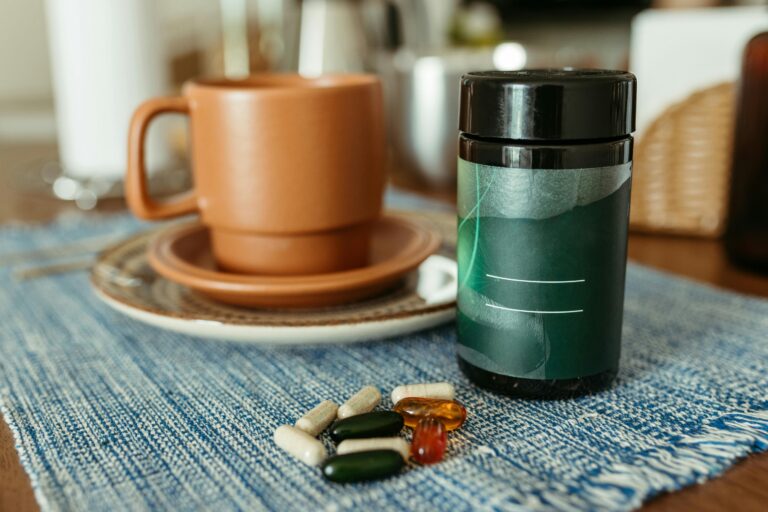FREE SHIPPING OVER $50
The Truth About NAD+, NMN & NR—Which One Slows Aging Best?

The promise of slowing down the aging process has captivated humanity for centuries. In our modern age, that promise has taken a new form: a handful of scientifically backed supplements that claim to work at the cellular level. At the center of this revolution is a single molecule, NAD+, and its two most prominent precursors, NMN and NR. If you’ve started to research longevity supplements, you’ve likely come across these acronyms and found yourself wondering, which one is the right choice?
This isn’t just a marketing battle. It’s a scientific debate that has created confusion for consumers who are simply looking for a clear path to a healthier, longer life. The truth is, while all three are interconnected, they are not the same, and understanding the differences can help you make an informed decision. We’re going to break down the science in a simple, easy-to-understand way. We will reveal exactly what NAD+ is, compare its two key players, and, most importantly, provide a definitive answer to which one truly helps slow aging best.
The Master Molecule of Aging: What Is NAD+?
Before we get to the supplements, we need to understand the star of the show. NAD+ stands for Nicotinamide Adenine Dinucleotide. While that’s a mouthful, all you need to know is that it’s a coenzyme found in every single cell of your body. It is arguably one of the most important molecules for your overall health and longevity.
So, what does it do? Think of NAD+ as a vital helper molecule. It powers two essential functions for a healthy life:
- Cellular Energy Production: NAD+ acts as a shuttle for electrons, playing a crucial role in your mitochondria (the powerhouses of your cells). Without sufficient NAD+, your cells can’t produce the energy they need to function properly.
- Cellular Repair and Maintenance: NAD+ is a crucial partner for a family of enzymes called sirtuins. These enzymes are often referred to as the “guardians of the genome” because they help repair damaged DNA and regulate cellular health.
The problem, as scientists have found, is that our NAD+ levels naturally decline with age. This decline is a key reason why we experience the effects of aging, from a drop in energy to an increase in age-related conditions. This is where supplements like NMN and NR come in.
The Contenders: NMN vs. NR
Since you can’t supplement directly with NAD+ (it’s a large molecule that can’t be easily absorbed by our cells), scientists have focused on finding precursors that our bodies can convert into NAD+. The two most popular are NMN and NR.
Nicotinamide Riboside (NR)
- What it is: NR is a form of vitamin B3. It was one of the first NAD+ precursors to gain widespread attention.
- How it works: When you take NR, your body takes it in and converts it into NMN and then, finally, into NAD+. It’s a simple, two-step conversion process.
- The Scientific Evidence: NR has a longer history of human clinical trials compared to NMN. Early studies have shown that it can safely and effectively increase NAD+ levels in humans. Research has also linked NR supplementation to improved metabolism, cellular repair, and a reduction in oxidative stress.
Nicotinamide Mononucleotide (NMN)
- What it is: NMN is a direct precursor to NAD+. In the conversion process, it’s one step closer to becoming the final molecule.
- How it works: When you take NMN, your body uses it to directly produce NAD+. Because it’s a more direct pathway, many proponents argue that it is a more efficient way to boost NAD+ levels.
- The Scientific Evidence: Much of the early research on NMN was done in animal models, particularly with mice, showing remarkable anti-aging benefits. These findings propelled NMN into the spotlight. More recently, human clinical trials are emerging and showing promising results, including improvements in muscle function, insulin sensitivity, and overall metabolism.
The Ultimate Showdown: Which One Is Best?
This is the question that everyone wants a definitive answer to. So, which one should you choose? The truth is, it’s not a simple one-size-fits-all answer. The scientific community is still in the process of gathering data, and a clear “winner” has yet to be declared. However, we can compare them based on the current scientific consensus.
- Efficacy: Both NMN and NR have been shown in human studies to be effective at raising NAD+ levels in the body. While proponents of each may argue their preferred molecule is “more efficient,” the difference is likely minimal in the real world. The most important thing is that both work.
- Cost: The price of these supplements can vary significantly depending on the brand. Historically, NR has been more expensive, but as the market has grown, prices for both have become more competitive.
- Safety: Both molecules are considered safe and well-tolerated in human studies at the recommended dosages.
The current expert consensus is that both NMN and NR are effective ways to increase NAD+ levels and support longevity. Rather than focusing on which one is “best,” it’s more important to focus on finding a reputable, third-party tested brand that provides a high-quality product.
A Holistic Approach to Longevity
While these supplements are powerful tools, they are not a magic bullet. To truly slow the aging process and live a long, healthy life, you must combine them with proven lifestyle choices that naturally support your body’s ability to produce NAD+.
- Exercise: Regular physical activity, particularly high-intensity workouts, is a powerful natural way to boost NAD+ levels and improve mitochondrial function.
- Caloric Restriction and Fasting: Studies have shown that both caloric restriction and intermittent fasting can increase NAD+ levels and activate the sirtuins that depend on it.
- Sleep: A good night’s sleep is essential for a wide range of cellular repair and maintenance processes, all of which are dependent on adequate NAD+ levels.
- Healthy Diet: Eating a healthy diet rich in nutrient-dense foods is crucial for providing your body with the building blocks it needs to produce NAD+ and other vital molecules.
Conclusion
The debate over NMN vs. NR is a fascinating one, but it doesn’t have to be a source of confusion. The truth is, both are scientifically-backed, effective ways to boost your NAD+ levels and combat the natural decline that comes with aging. The choice between them often comes down to personal preference, cost, and availability.
The most important takeaway is this: you have the power to take an active role in your longevity. Whether you choose to supplement with NMN or NR, the most impactful thing you can do is to combine it with a healthy lifestyle. By making informed choices about your diet, exercise, and sleep, you are directly supporting your body’s ability to repair itself and live a longer, more vibrant life.
Related Articles
- Your Morning Coffee Could Be Canceling Out Your Vitamins—Here’s What You Need to Know
- Doctors Say: This is the Best Time to Take Probiotics Supplements for Maximum Benefits (Morning on an Empty Stomach)
- Can’t Sleep? These 10 Natural Alternatives to Melatonin Actually Work
- Taking These 5 Supplements? They Might Be the Reason You’re Constipated or Running to the Bathroom
- The Vitamin That Could Be Causing Your Hair to Fall Out—And Most People Don’t Know It







